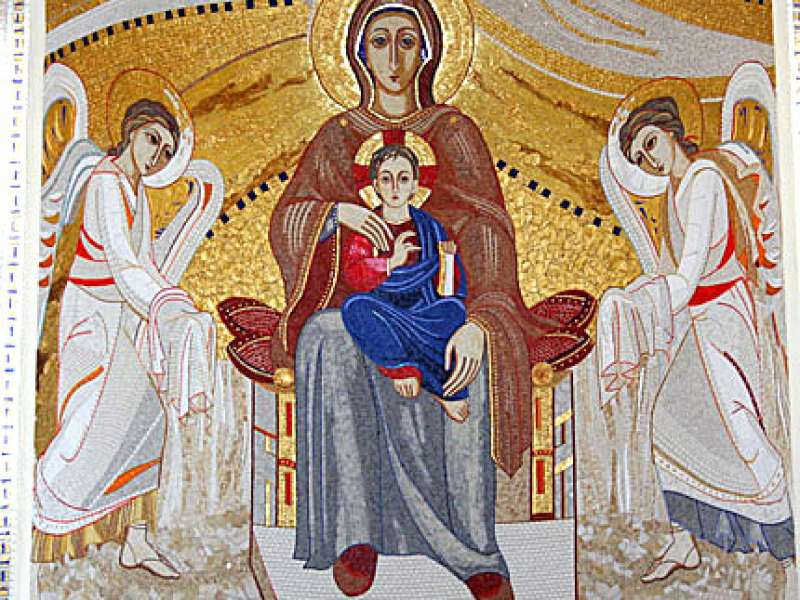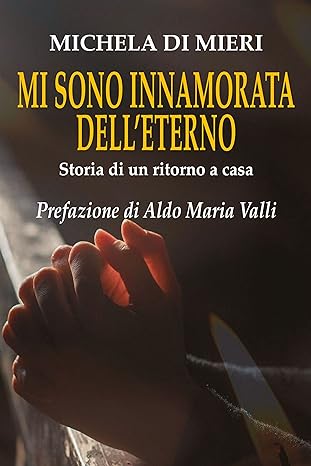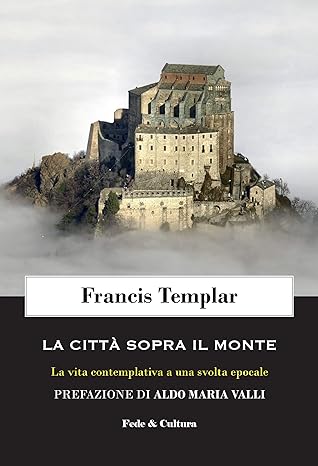
Cardinal Burke’s Mditation / Advent & the Door of our Hearts
Dear friends of Duc in altum, Cardinal Burke has given us the gift of this meditation on Advent.
***
Praised be Jesus Christ!
Dear brothers and sisters in Christ,
The liturgical Season of Advent is, above all, a season of preparation by means of purification. The words of St. John the Baptist—in a true way, the saint of the Season of Advent—which convey his mission in the world reveal the meaning of the observance of Advent: “Prepare the way of the Lord, straighten His paths!” (Mt 3: 3). Even as Saint John the Baptist prepared the paths of the Lord’s coming in time into the world, so too the four weeks of Advent are our time of preparation to welcome the Lord more completely into our life now, so that we will be ready to welcome Him finally and totally on the day of His coming in glory at the end of time.
St. John the Baptist’s preparation for the coming of the Lord, brought to completion four thousand years of preparation by the People of God for the coming of the Messiah, the Anointed of the Lord. The Original Sin committed by Adam and Eve and God’s promise of the Savior mark the start of this long preparation: “I will put hostility between you and the woman, and between your offspring and her offspring. He will strike your head, and you will strike his heel” (Gen 3, 15). During the weeks of Advent, we unite with our brothers and sisters of the People of God who waited and longed for the coming of the Messiah, the Savior. In the Sacred Liturgy, we listen to the Word of God, given to us by the Prophets, by which God the Father inspired and nourished the hope of His people in expectation, until the day of God the Son’s Incarnation for our eternal salvation: the Redemptive Incarnation.
During the Season of Advent, let us unite in a special way with the Blessed Virgin Mary, the most perfect flower of the People of God, whom God prepared from the moment of her conception to receive the Messiah in her womb at the moment of His coming in time. Let’s implore her intercession, so that we can imitate her pure heart, so our hearts are ever more willing to receive Christ at His coming into our life, above all through the reception of the Most Holy Eucharist, the Heavenly Bread which is truly His Body, Blood, Soul and Divinity.
Christ knocks at the door of our hearts
Dom Prosper Guéranger, O.S.B., the renowned commentator on the Sacred Liturgy who lived in the 19th century, writes about the season of Advent with these words:
Dom Guéranger’s description of Advent calls to mind the vision of St. John the Apostle and Evangelist, in which the Lord speaks to the seven Churches of Asia Minor about His coming at the end of time. The Lord exhorts His children to repent of their sins and to rekindle His love in their hearts. Yes, the words of the Lord naturally cause us to fear. The Church calls this holy fear or Fear of the Lord. It is a fear that awakens us to be aware that we are living as if Jesus had not come into the world and into our hearts, and that pushes us to take the path to change our ways of living. It is not a fear that leads us to despair, because the Lord assures us: “Here: I stand at the door and knock. If anyone listens to my voice and opens the door for Me, I will come to him and dine with him and he with Me” (Rev 3:20).
The Lord doesn’t stop knocking on the door of our heart, sometimes in dramatic ways, but always in the ordinary way He comes to meet us in the Church, seeking our love, desiring to establish His abode in us.
Purifying our hearts to receive the Lord
The practice of penance and, above all, the confession of our sins and their absolution by the grace of God in the Sacrament of Penance are at the heart of our preparation for Advent. In what better way can we prepare the ways of the Lord into our hearts than praying with greater fervor and practicing acts of mortification by which the Lord frees our minds from distractions and our hearts from wrong affections!
Our prayer and penance during the Season of Advent reach their fullness and, at the same time, are sustained by our regular encounter with the Lord in the Sacrament of Penance. By confessing our sins, whether they are great or small, we purify and dilate our hearts so that Christ can more fully take up His abode with us and in us. By the absolution of our sins in the Sacrament of Penance, Our Lord comes to meet us and lives with us, assisting us in embracing the work of reparation, so that His mercy and His love are rooted ever more deeply in our hearts.
A proper and sincere confession of our sins, therefore, requires that the person “must confess to the priest all mortal sins which he has not yet confessed and which he remembers after a careful examination of conscience” (Catechism of the Catholic Church, n. 1493). This confession must be integral, in the sense that mortal sins must be confessed according to their kind and number. Otherwise, we would fail to confront our guilt with honesty and seek forgiveness for all the sins of which we are aware.
One is not obliged to confess venial sins, but it is better to do so, because even small shortcomings inhibit the total reign of Christ in our hearts. Not taking account of our venial sins can easily lead us to more serious sins. “Although not in itself required, the confession of venial sins is nevertheless strongly recommended by the Church” (Catechism of the Catholic Church, n. 1493).
Christ comes knocking at the door of our hearts every day and every moment of every day. He wishes to make His home with us forever. We receive the powerful graces of the Season of Advent, in which we enter, so that our ears are attuned to hear the knock of Christ and our minds and hearts are disciplined to give a more heartfelt welcome to Him in our life.
Imploring Our Lord, through the intercession of Our Lady of Guadalupe, to bless you, your homes, your families, and all your labors, I remain yours in the Sacred Heart of Jesus and the Immaculate Heart of Mary, and in the Purest Heart of Saint Joseph,
Raymond Leo Cardinal Burke



